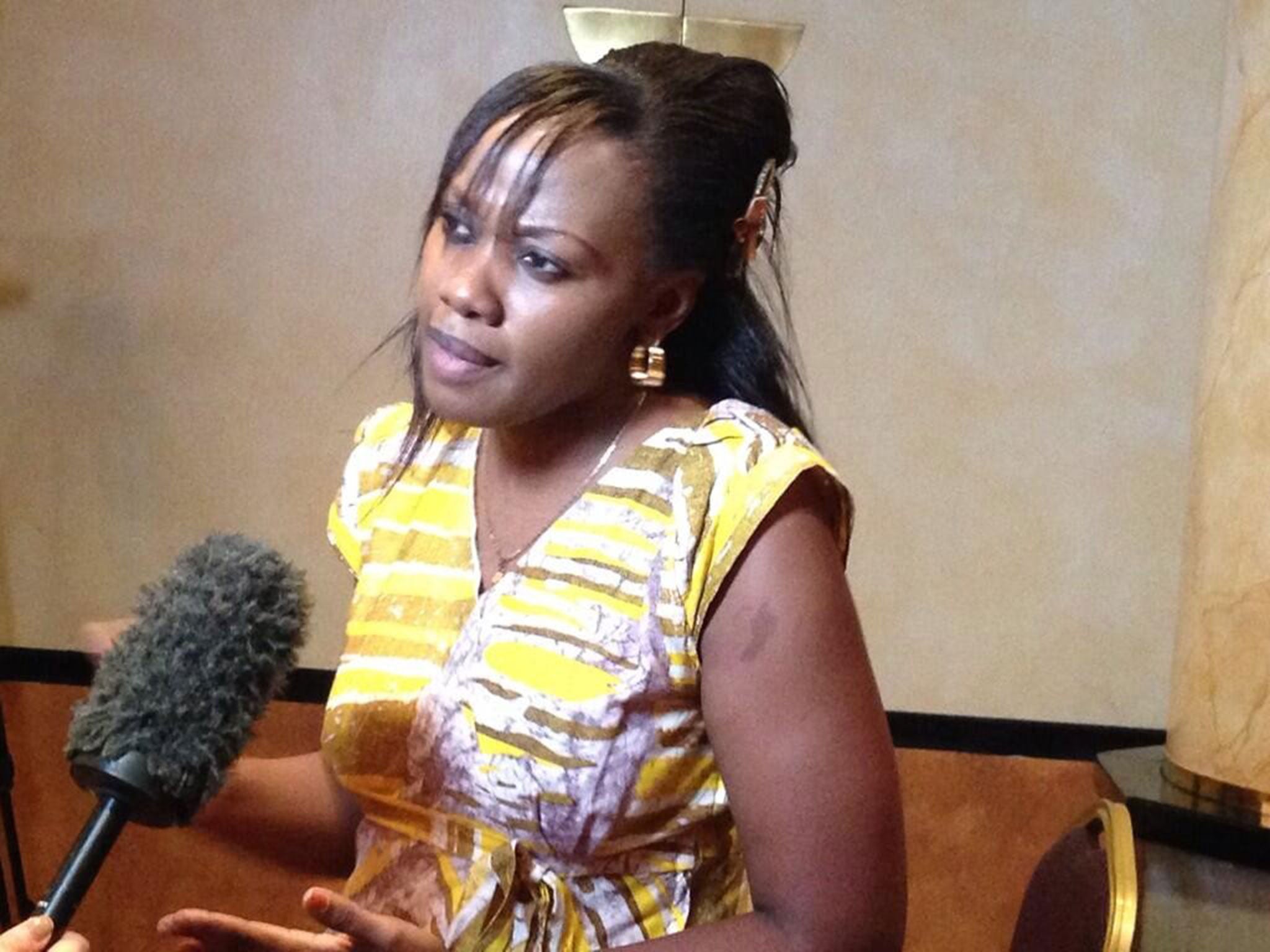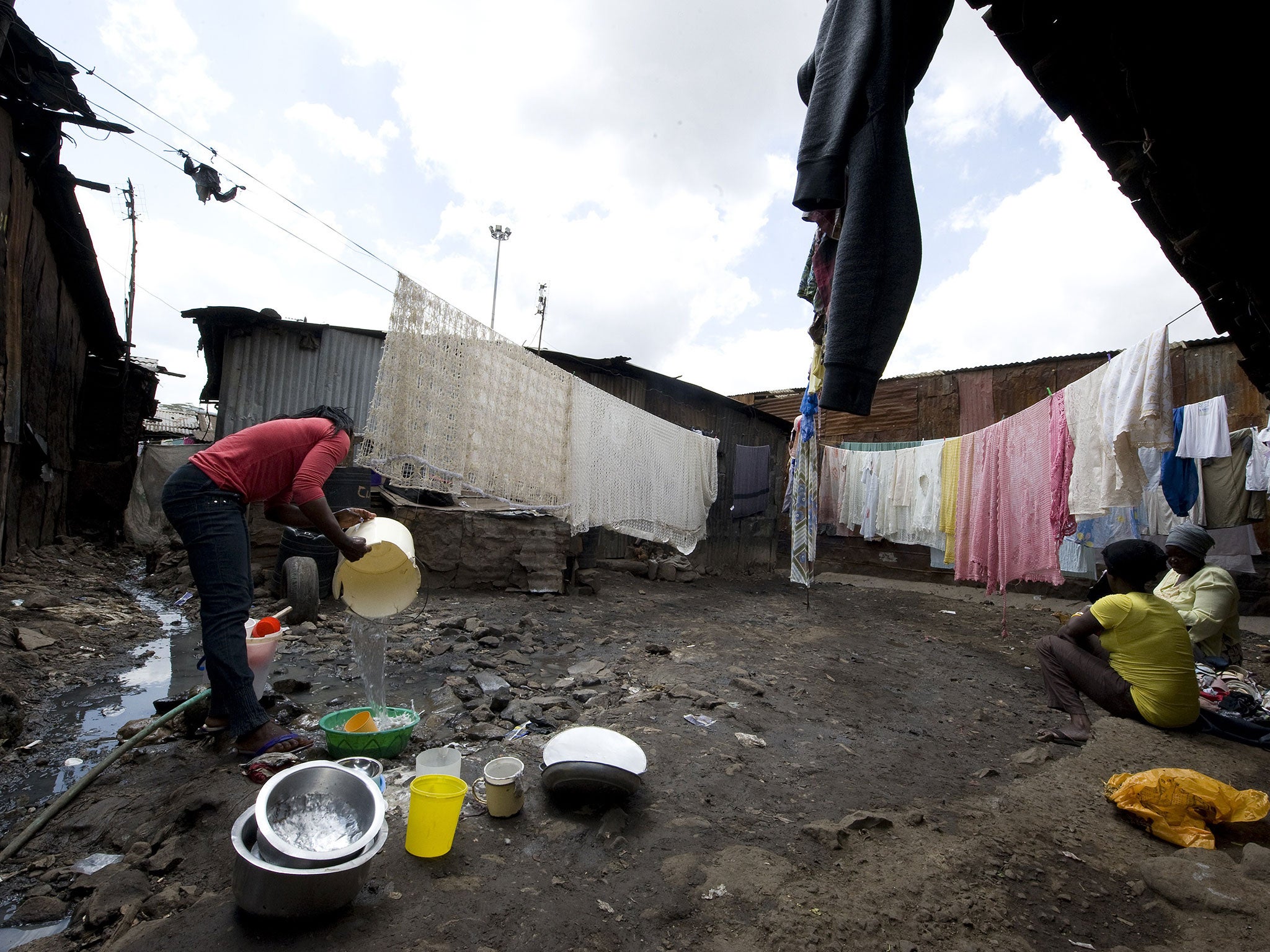The mother who defied threats to take on the factory spewing out toxin
Families in a Kenyan slum were slowly succumbing to lead poisoning from a smelting plant until Phyllis Omido campaigned for its closure

Your support helps us to tell the story
From reproductive rights to climate change to Big Tech, The Independent is on the ground when the story is developing. Whether it's investigating the financials of Elon Musk's pro-Trump PAC or producing our latest documentary, 'The A Word', which shines a light on the American women fighting for reproductive rights, we know how important it is to parse out the facts from the messaging.
At such a critical moment in US history, we need reporters on the ground. Your donation allows us to keep sending journalists to speak to both sides of the story.
The Independent is trusted by Americans across the entire political spectrum. And unlike many other quality news outlets, we choose not to lock Americans out of our reporting and analysis with paywalls. We believe quality journalism should be available to everyone, paid for by those who can afford it.
Your support makes all the difference.When Phyllis Omido landed a new job in 2007, she couldn’t have been happier. Although she’d be working in a smelter in the poor slum neighbourhood of Owino Uhuru in Mombasa, it was a coveted office job, and came with perks like a company car and free petrol.
But after a few months Ms Omido’s young son King David, until then an easy baby, fell ill. He had fevers and cried constantly. Hospital visits and many tests followed, but doctors were baffled, and eventually baby King was admitted.
Ms Omido was terrified and desperate. Among the friends who visited the pair in hospital was a senior official in Mombasa’s export processing zone, tasked with attracting foreign investment like the smelter. “He told me, ‘Have you thought that maybe it could be lead poisoning?’” says Ms Omido.
She had been breastfeeding King while working at the factory. Blood tests showed he had lead levels of 17 microgrammes per decileter. There is no safe level of lead for children, and any level higher than five requires action. “I was so angry,” Ms Omido says. “I cried for days, because it was me that had made him sick. Immediately I knew I was never, ever going back there.”
With help from relatives and doctors, Ms Omido arranged treatment for King, to minimise the risk that he might suffer neurological, biological and cognitive damage. Faced with a £1,500 bill, Ms Omido went to the refinery owners and asked them to pay; in return she signed a stack of documents, including a promise to keep silent.
But after paying her bills, Ms Omido felt she couldn’t keep such a dark secret. Managers at the factory routinely turned up for on-site meetings in full protective gear, but offered workers only flimsy cotton gloves that fell apart within days. “I decided to do my duty and tell people working there what my son had been through – and that they should be careful.”

People were concerned, but not unduly so – some thought Ms Omido had been fired and was just making trouble – until Karissa Charo, a smelter worker who fell ill from lead poisoning, died. “People got scared and started calling me,” Ms Omido says. Although lead poisoning can cause damage to the body’s organs, it’s rare for adults to die from it. Yet at least three people who worked at this one factory are dead. And some 3,000 people still live in the factory’s shadow.
When Ms Omido and other locals gathered enough money to perform blood tests on 15 residents, including children, 14 of them had high lead levels. The only person who didn’t was a child who’d just moved to the area. The water supply used by the community to drink, cook and bathe in is feared contaminated. But residents cannot afford to pay for mains water.
Once Ms Omido started investigating, she began to receive threats. As she returned home one evening, two armed men tried to kidnap her in front of her young son. “My son started screaming,” Ms Omido says. “I remember being hit at some point. I was thinking, ‘Why can’t he keep quiet?’ Because I thought they might shoot him.”

She was saved when a passing car scared off the attackers; she and King never spent another night in that home and have since moved away. Soon after, the refinery stopped operating, but only temporarily. “We thought yeah, it’s not going to open! But after a few weeks, there it was again, spewing smoke.” For months, years, Ms Omido and her fellow campaigners sought answers from the Kenyan authorities, writing letters, holding demonstrations and demanding meetings. But they got nowhere.
So she founded her own group, the Centre for Justice, Governance and Environmental Action, and sought international help to mount a class-action case in the Kenyan courts. Human Rights Watch has been working with Ms Omido since 2011, trying to raise her case in Nairobi and Geneva. But it’s Ms Omido who lives the daily battle, scraping together funds and pressing for justice for the community.
A few weeks ago the thick, black smoke the smelter belches out into the air stopped and, for now, operations at the factory appear to have ceased. But activists can’t get any information about the smelter from local authorities and fear it could restart at any time, or relocate and pollute a new community. The factory building remains a testament to how poisonous the wrong type of investment can be. Ms Omido still visits Owino Uhuru regularly, but she has a strict protocol to protect her son King, now a healthy eight-year-old, when she gets home. “Mum goes sometimes to a place that is poisonous, so he knows I have to bathe first and change my clothes,” says Ms Omido. “Only then can he hug me.”
Officials have failed to investigate how, in the 21st century, a factory could poison not just its workers but an entire community.
Like Ms Omido, most environmental activists aren’t professional campaigners but ordinary people caught up in extraordinary events, either unable or unwilling to turn a blind eye.
Environmental activism is an increasingly dangerous trade: according to the advocacy group Global Witness, two activists are killed every week for their work.
Emma Daly is communications director at Human Rights Watch and a former correspondent at The Independent
Subscribe to Independent Premium to bookmark this article
Want to bookmark your favourite articles and stories to read or reference later? Start your Independent Premium subscription today.
Join our commenting forum
Join thought-provoking conversations, follow other Independent readers and see their replies
Comments